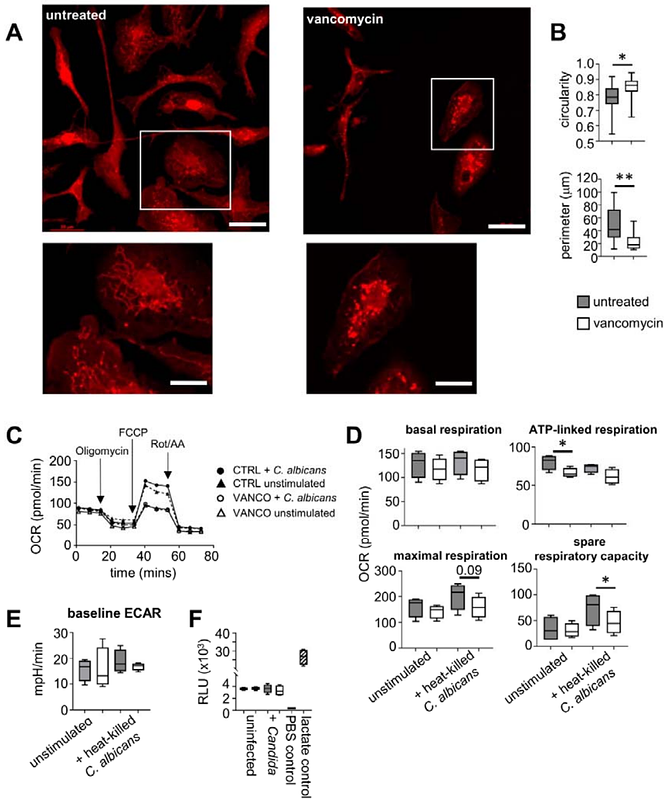Vancomycin impairs macrophage fungal killing by disrupting mitochondrial morphology and function

Vancomycin impairs macrophage fungal killing by disrupting mitochondrial morphology and function
Bojang, E.; Sheriff, L.; Fu, M. S.; Wellings, C.; Abdissa, K.; Stavrou, V.; Clark, C.; Southam, A.; Dunn, W.; Bending, D.; Hombrebueno, J.; Jacobsen, I.; Dimeloe, S.; Hall, R. A.; Drummond, R. A.
AbstractVancomycin is a widely prescribed antibiotic used in the treatment of Gram-positive bacterial infections. We recently showed that this antibiotic disrupted protective anti-fungal immune responses via microbiome dysbiosis, enhancing susceptibility to invasive candidiasis. Antibiotics are an independent risk factor for developing this life-threatening fungal infection, but whether microbiota-independent mechanisms also drive this association is not clear. Here, we show that vancomycin directly impairs macrophage responses to Candida albicans, the main causative agent of invasive candidiasis. Vancomycin-treated macrophages were less able to kill C. albicans despite normal phagocytosis rates and were hyper-inflammatory and more likely to die during infection. We found that vancomycin bound to macrophage mitochondria, leading to depolarisation, reduced respiratory capacity and a hyper-fragmented morphology associated with increased ROS production. Taken together, this work demonstrates direct effects of vancomycin on mammalian immune cells, helping us to understand pro-inflammatory effects of this drug and how it promotes susceptibility to life-threatening fungal infection.


